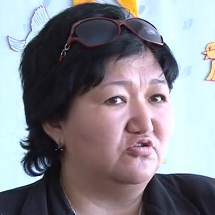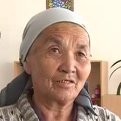There are 70 kids in the preschool program in the village of Don-Aryk. But, school officials say, there are at least two hundred more whose families want to join the program. Demand is high, but space for more students is low. “I think there’s a need to expand preschool education,” says Jumagul Alibaeva, the school’s principal. “Here, we have kids from other villages and there is an increasing understanding of how important early childhood education is in socialization.”
With support from the World Bank, the Kyrgyz Republic is trying to both improve and expand pre-school education. The Bank’s fast-track project has provided training to over 3,000 preschool teachers, and bought furniture and materials for classrooms like this one.



